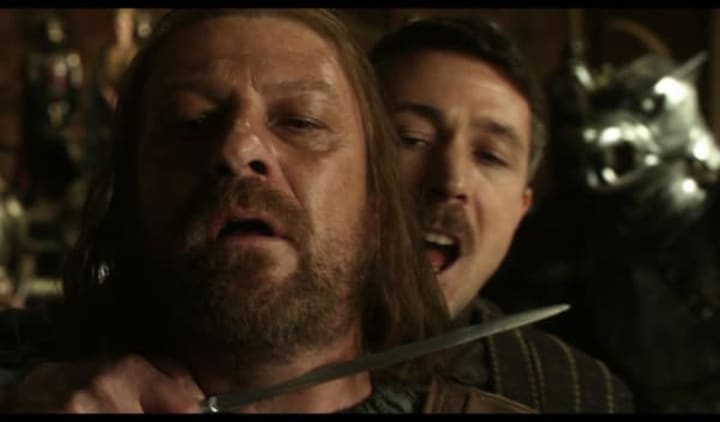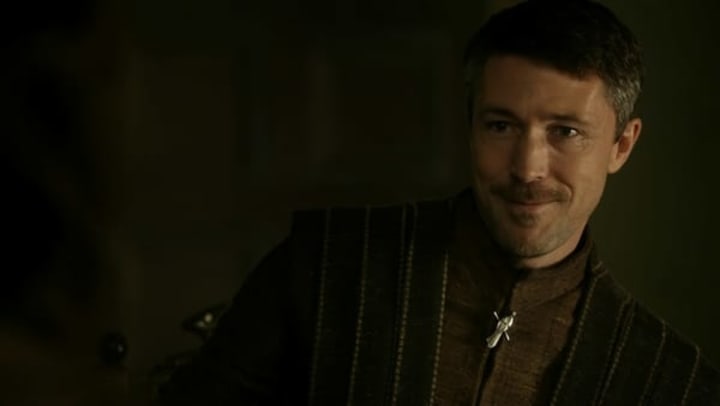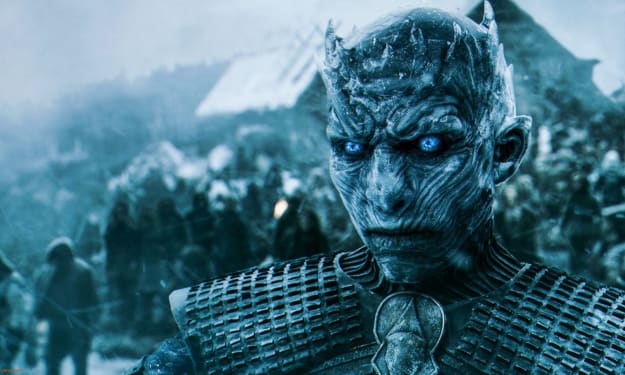Game Of Baelish – How Littlefinger Was The Most Important Character In 'Game Of Thrones'
Lord Petyr Baelish: lying, scheming and manipulative; Game Of Thrones fans loved to hate Littlefinger...

Lord Petyr Baelish: lying, scheming and manipulative; Game Of Thrones fans loved to hate Littlefinger. In the show's explosive Season 7 finale, the remaining Starks eventually exposed the side of Lord Baelish that the viewers have seen all along and brought on his gruesome end.
But does Game Of Thrones even exist without Littlefinger? The title originates from the first novel of George R.R. Martin's Song Of Ice And Fire – and the title of the book series seems more fitting for what the show has become. However, "Game of Thrones" worked for as long as Baelish lived: almost every major event and occurrence seemed to be the result of Littlefinger's handiwork. The 'game' we have become so invested in can be interpreted as an elaborate chess game that's been headed by Littlefinger, with the other people of Westeros mainly working as the pieces.
So what does this mean for the future of the show? Season 8 seems set to have a different tone without the influence of chaos's biggest fan.
Lord Baelish Was Intrinsic To Game Of Thrones
A master of deception, Littlefinger has been behind practically everything Game of Thrones has been about so far. In the very first season, he was an influence in the death of John Arryn and Ned Stark's capture. He also convinced Lady Catelyn that the Lannister's had tried to kill Bran – all pivotal moments in the Game Of Thrones trajectory, with consequences that still resonate throughout the show now.
In almost every season, despite not having the most screen time, #Littlefinger's whispered conversations with other characters proved have more repercussions than even some of the show's most epic battle scenes. He played a key part in Jeoffry's murder and Sansa's escape from King's Landing. He was also integral to the rise of the Boltons, as well as Jon and Sansa's eventual victory in taking back Winterfell.
All of the dominant events in #GameOfThrones seem to have been engineered by Littlefinger – there's no denying that the show would be very different without the schemes of this character.

'Game of Thrones' [Credit: HBO]
Littlefinger Was The Definition Of The Title
Actor Aidan Gillen had the fortune of delivering many of Game Of Thrones' iconic lines as Lord Baelish. Many of these expressed the ambition, ruthlessness and cynicism that defined the show.
Here is one of his most iconic speeches, which embodies the spirit of Game of Thrones and displays just how characteristic Littlefinger was of the opportunism that distinguished the show:
Petyr Baelish: You know what I learnt losing that duel? I learnt that I'll never win. Not that way. That's their game, their rules. I'm not going to fight them: I'm going to f**k them. That's what I know, that's what I am, and only by admitting what we are can we get what we want.Ros: And what do you want?Petyr Baelish: Everything, my dear. Everything there is.
And who can forget one of the show's famous 'Chaos is a ladder' sequence? The only character to rival Littlefinger's stealth was Lord Varys. The entire philosophy of Game Of Thrones was summed up in a conversation between the two:
Petyr Baelish: The realm. Do you know what the realm is? It's the thousand blades of Aegon's enemies, a story we agree to tell each other over and over, until we forget that it's a lie.Lord Varys: But what do we have left, once we abandon the lie? Chaos? A gaping pit waiting to swallow us all.Petyr Baelish: Chaos isn't a pit. Chaos is a ladder. Many who try to climb it fail and never get to try again. The fall breaks them. And some, are given a chance to climb. They refuse, they cling to the realm or the gods or love. Illusions. Only the ladder is real. The climb is all there is.

'Game of Thrones' [Credit: HBO]
Littlefinger Brought Us Closer To Our Favourite Characters
Since Season 1, Lord Baelish was always too smooth to be likable, but his apparent support for fan favorite Ned Stark encouraged viewers to make allowances for the character. The writers cleverly kept views undecided about Littlefinger up until he betrayed Ned, confirming suspicions with the line, "I did warn you not to trust me."
This theme was continued throughout the show, with Littlefinger subtly manipulating other characters who were convinced by his persuasion and lies. However, fans of the show knew better than to assume that this character would be doing anything that didn't serve himself, typically to the detriment of others. Watching characters fall into his elaborate traps made it impossible not to become engaged with them, and will them to see through Lord Baelish's guise. His mentorship of Sansa possibly generated more support for her among fans, who knew that his plans would not be in her best interests.
Littlefinger was more than a double agent – he switched support for characters without any sense of loyalty. This led to him being awarded the trust of more than one side of disagreements, and he would furtively encourage disharmony, mistrust and suspicion wherever he believed it would be the most rewarding to his own cause. Seeing our favorite characters become pitted against each other has made for engaging viewing, and has arguably been the main storyline for the Starks at Winterfell throughout season 7. This made Sansa, Arya and Bran's union in Baelish's demise all the more ironic and satisfying.
Game Of Thrones Without Littlefinger
Petyr Baelish embodied the spirit of Game Of Thrones. However, the show used to be defined by cunning and deception, and now honesty and justice have taken center stage. The rulers to root for, including Jon, Daenerys and Sansa, support positive values that would have proved fatal for characters in the show's earlier seasons. The bloodthirsty seem more set to fail than they would have before – even Cersei seems to be clinging to a precarious ledge.
This change in the show's tone was poetically represented by Littlefinger's demise. Maybe Game Of Thrones symbolizes the times in which it is created: it's origins in peaceful times made conspiracies and violence an entertaining feature, but now, turmoil in politics with threats of war have made peace seem so much more precious. Perhaps this is why reconciliation throughout Westeros and the Seven Kingdoms has suddenly become a more appealing end for Game Of Thrones.
About the Creator
Rebecca Keane
Arts student. Aspiring writer. Avid reader. Film and TV show enthusiast. Follow me on twitter @RebeccaK1178






Comments
There are no comments for this story
Be the first to respond and start the conversation.